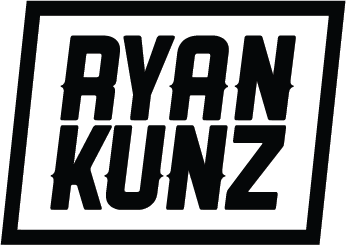Originally published October 23, 2014.
As a writer, I am indebted to a number of literary influences over the years. These have steered me in the right direction as I embarked on my writing adventures, shaping my formative writing years and giving me something to aspire to. Without further ado, here are the ten books that have had the most impact on me, in no particular order. Sci-fi and fantasy books are well-represented on this list, but there's plenty for everyone:
Unbroken, Laura Hillenbrand
This is the true, meticulously researched story of Olympian and World War II veteran Louis Zamperini. I marveled as he survived the downing of his bomber in the Pacific Ocean and the ensuing drifting at sea. I cringed at every new abuse his Japanese captors laid upon him. I thought the book was over when Louis finally came home. But I was wrong: Louis’s arc wasn’t complete until he confronted his tormentors years later and offered his forgiveness.
The Harry Potter series, J.K. Rowling
I just don’t trust people who are my age and haven’t read Harry Potter. What other defining aspects of your late childhood and adolescence have you willfully deprived yourself of? Sure, it’s a story of good and evil that’s been told a myriad of times before, but it’s a fascinating world inhabited by charming characters whose struggles, despite their sorcerous surroundings, are grounded in the real world. The magic isn’t confined to wands and wizardry; the real magic is in the way you grow to love Harry, Ron, Hermoine, Professor Dumbledore, Sirius Black, and so many others.
The Lord of the Rings, J.R.R. Tolkien
Sure, it’s a long journey, where sometimes you have to trudge through Tolkien’s cumbersome prose like Frodo and Same slogging through Mordor. But this is definitive fantasy; you can’t like any of the many derivative works—especially the film adaptations, which are some of the greatest movies ever produced by the hands of mortal men—without acknowledging that this is where it all began.
The Way of Kings, Brandon Sanderson
After I finished reading The Way of Kings, it occurred to me that this is how fantasy is supposed to be. Every fantasy writer should aspire to create a world that simultaneously manages to be this wholly original and yet so compellingly believable. If you’re not enough of a fantasy fan to pick up this hefty tome, just know that Brandon Sanderson knows how to do it right.
The Redwall series, Brian Jacques
My middle school writing was defined by these stories of daring heroism and dastardly villainy. Every story I wrote for years mimicked the Redwall books. Though they start getting formulaic after a while, the series offers a grand window for any young reader into the world of fantasy.
20,000 Leagues Under the Sea, Jules Verne
When I read this in third grade, it was the most ambitious reading project I’d ever undertaken. But Jules Verne’s classic instilled in me a love of science fiction and fantasy—a love of worlds created by asking what if? and answering the question the only way we know how.
The Star Wars trilogy, Alan Dean Foster, Donald F. Glut, and James Kahn
George Lucas wrote the stories, but he let others handle the novelizations of the movies. You may not even know these books exist, but they do. It’s one thing to hear the clash of lightsabers in a theater, but it’s another thing entirely to hear your favorite moments described with a fresh new voice.
The Book of Mormon
Including this one a list of literary influences might seem like a cop-out, similar to including Jesus on your list of people you’d most like to meet in history. Of course, you say, rolling your eyes. The Book of Mormon hasn’t offered much in the way of writing inspiration, but it has offered me insight into my place in the eternal scheme of things, a gift no other book on this list can begin to match.
Collected works, Dave Barry
It seems a jarring change of tone to follow the Book of Mormon with an author who prides himself on his repertoire of booger jokes, but I owe a lot of laughter to Dave Barry. Many of my early attempts at humor were attempts to imitate Barry’s jokes, as well.
A Walk in the Woods and other books, Bill Bryson
I discovered Bill Bryson later than I did Dave Barry, which was probably for the best. Where Barry is as subtle as a weasel forced down your pants, Bryson’s brand of humor is more understated, woven skillfully alongside astute cultural observations.
Honorable Mentions:
Into Thin Air and Into the Wild, Jon Krakauer
The High King, Lloyd Alexander
Frankenstein, Mary Shelley
The Shannara series, Terry Brooks
Heir to the Empire and sequels, Timothy Zahn
Ender's Game, Orson Scott Card

